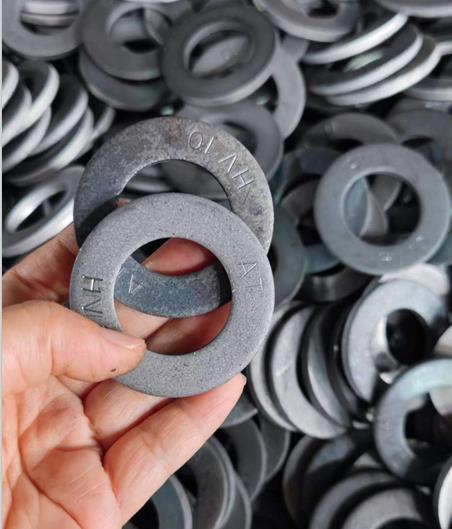Order Flat Washers and Spring Washers from Reliable Manufacturing Factory
Understanding Flat Washers and Spring Washers A Guide to Factory Orders
When it comes to fastening technology, flat washers and spring washers play crucial roles in ensuring the reliability and longevity of mechanical assemblies. These components, while seemingly simple, are essential for distributing load, reducing friction, and preventing loosening under vibration. For manufacturers and procurement specialists, understanding these washers and knowing how to order them from factories can make a significant difference in the efficiency and quality of their operations.
What are Flat Washers?
Flat washers are disc-shaped plates typically made from metal, plastic, or rubber. Their primary function is to distribute the load of a threaded fastener, such as a screw or bolt, over a larger area. This helps to prevent damage to the material being fastened, especially when dealing with soft materials. Flat washers also serve to reduce the risk of loosening by providing a stable surface for the nut or bolt head to make contact with.
The sizing, material, and finish of flat washers can vary significantly depending on the specific application. Common materials include stainless steel, carbon steel, and various types of plastic. In the manufacturing sector, choosing the right type of flat washer is critical to ensuring the integrity of the assembly.
What are Spring Washers?
Spring washers, on the other hand, are helical or curved washers designed to exert a spring-like force. They are primarily used to maintain tension and prevent loosening of bolts and nuts in applications subject to vibration or dynamic loads. The unique design of spring washers allows them to compress and expand, providing a constant force that keeps the fastener tight even under adverse conditions.
There are several types of spring washers, including - Lock washers These provide a locking mechanism that helps prevent the nut or bolt from loosening. - Belleville washers These are conical-shaped and can be stacked to achieve varying levels of spring tension. - Wave washers These are designed to provide a load in a compact space and are commonly used in applications where axial space is limited.
Each type of spring washer has its own characteristics and applications, and selecting the right one is paramount to achieving optimal performance.
Ordering Flat and Spring Washers from Factories
flat washer spring washer order factory

When it comes to ordering flat washers and spring washers from factories, there are several key factors to consider
1. Specifications Clearly define the specifications required, including dimensions (outer diameter, inner diameter, thickness), material grade, and finish. This will ensure that you receive washers that meet your exact needs.
2. Quantity Determine the number of washers you require. Many factories have minimum order quantities, so understanding how many you need will help you negotiate better pricing and terms.
3. Customization If your application requires unique specifications, inquire about customization options. Many factories offer the ability to produce washers to custom dimensions or with specific material properties.
4. Lead Time Discuss the lead time for production and delivery. This is crucial for planning your inventory and ensuring that your assembly line runs smoothly.
5. Quality Standards Ensure that the factory adheres to necessary quality standards, such as ISO certifications. This will give you confidence in the reliability and performance of the washers being supplied.
6. Supplier Reliability Research potential suppliers to gauge their reputation in the industry. Reviews and testimonials from previous customers can provide insight into their reliability and the quality of their products.
7. Cost Compare pricing from different factories. However, it is important to remember that the cheapest option is not always the best; consider factors such as quality and service.
Conclusion
Flat washers and spring washers may appear to be minor components in the grand scheme of manufacturing, but their importance cannot be overstated. Whether you are working on machinery, automotive components, or structural applications, these fasteners are integral to ensuring the reliability and durability of your assemblies. By understanding the differences between these types of washers and how to effectively order them from factories, procurement specialists can make informed decisions that enhance their manufacturing processes. In the competitive landscape of modern manufacturing, attention to detail in every component can lead to significant advantages in quality and operational efficiency.
-
Top Choices for Plasterboard FixingNewsDec.26,2024
-
The Versatility of Specialty WashersNewsDec.26,2024
-
Secure Your ProjectsNewsDec.26,2024
-
Essential Screws for Chipboard Flooring ProjectsNewsDec.26,2024
-
Choosing the Right Drywall ScrewsNewsDec.26,2024
-
Black Phosphate Screws for Superior PerformanceNewsDec.26,2024
-
The Versatile Choice of Nylon Flat Washers for Your NeedsNewsDec.18,2024










